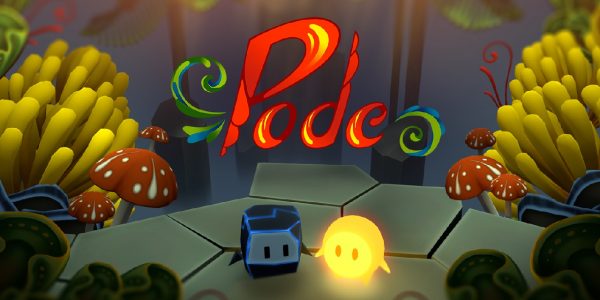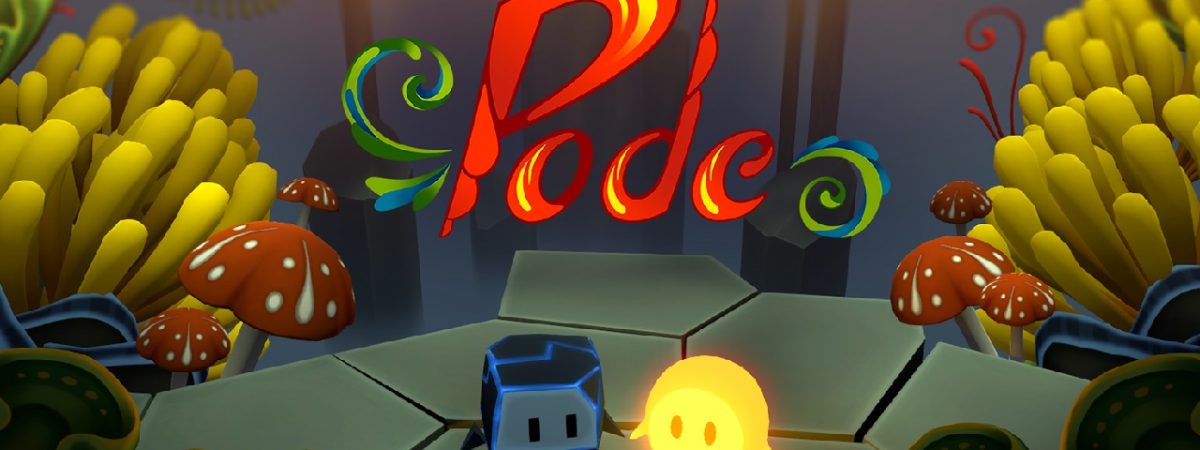Pode was one of numerous titles featuring at EGX 2018 this year; a cooperative puzzle exploration game developed by Norwegian studio Henchman & Goon and launched for the Nintendo Switch back in June of this year. The studio cites traditional Norwegian art and culture as the inspiration for Pode’s distinctive art style. During the event, I had the opportunity to interview Linn Søvig, Marketing Director at Henchman & Goon, about the studio’s newest game.
What is Pode?
On the game’s official website, Henchman & Goon describe Pode as; “a co-op puzzle exploration game built around the themes of friendship and cooperation, with a strong emphasis on positive actions, relaxing atmosphere and beautiful art inspired by Norwegian culture”. The Norwegian studio launched the title on the 21st of June for the Nintendo Switch. Thus far, the game has already won the Best Casual Game award at GCDA 2018, as well as the Unity 3D Game Art Challenge.
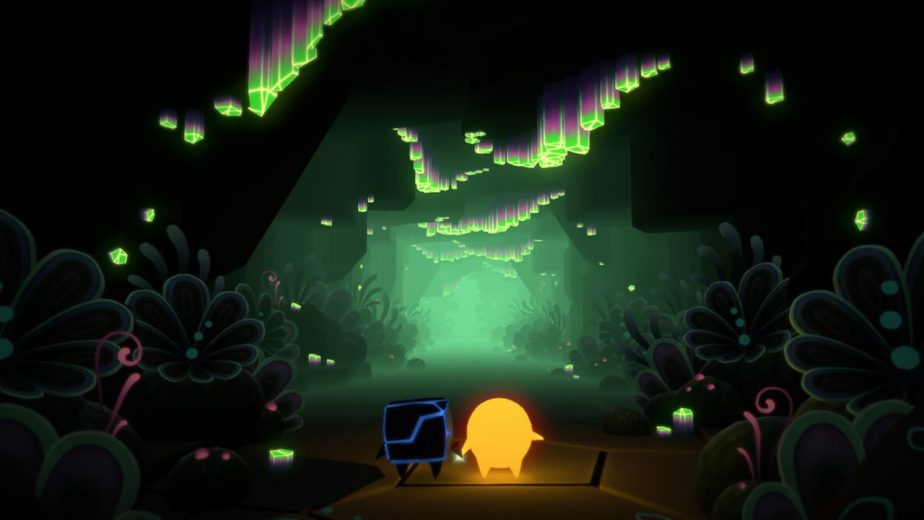
Linn Søvig on Pode, Norwegian Art, and the Future of the Game
What about Pode makes the game stand out from the crowd? So, what really makes it different?
“I like to think that Pode does very much the same thing that Pixar did with animation films for a while. It has that two layers of fun, both for adults and for kids, so I think that makes it stand out. Also, it’s the fact that it’s a co-op game that’s not competitive; you know, you’re not competing against each other, you actually have to work together. Oh, and the art style! Oh my God, the art style; how can I not talk about the art style!”
For people who may not have heard of Henchman & Goon, can you tell me a bit about the studio’s history and its ethos when it comes to game design?
“Henchman & Goon started six years ago. Basically, a group that met at school… a game development school here in Norway that actually has a one-year… their last year is actually at Teesside here in Middlesborough. After they finished that whole course, they decided that they wanted to create a game studio together and continue creating games together. Our CEO, Yngvill Hopen, actually went on to do a Master’s from Teesside as well. But she did that at the same time as working at Henchman & Goon.
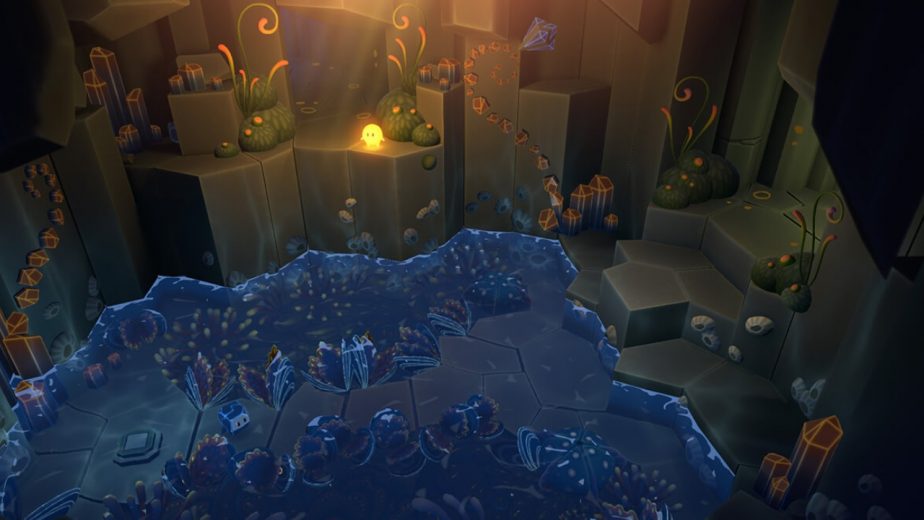
“But Henchman & Goon I think started off with – I might be getting this wrong, but I think that they were about twelve people at the beginning, and then it eventually evolved into… some people were working on more industry-focused animation and 3D modelling, and the other half was working on pure game development, so they split up and started a new company called Goontech, and Henchman & Goon continued to work on games that they wanted to create. First game was Flem, which is a platformer out on PS Vita and Steam, and then Pode. We started working on that about three years ago, and the team has been mostly core people consistently, through the whole three-year period, and then some people on and off, so right now we’re seven people; we’re in Norway, if I didn’t mention that.”
Pode is described as being inspired by Norwegian art, culture, and nature; can you go into a bit more detail as to what specifically inspired the title?
“Definitely! So, a lot of Norwegian art is very inspired by Norwegian nature; the whole sort of plants and the greenery… so you see that in, for example, our national dress; there’s a lot of embroidery which is very much like what you’ll see in Pode, which is very much an inspiration. And there’s also a paint style which we call ‘rose painting’ from the 16- or 1700s, which is very traditional Norwegian. This is what we use to paint all of our family heirlooms.”
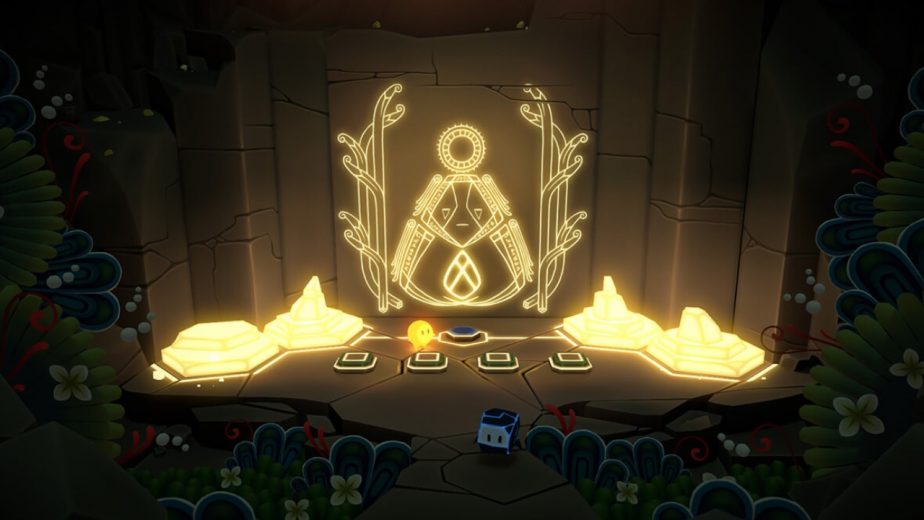
What distinguishes the two main characters of Bulder and Glo from one another in gameplay terms?
“Everything. They were always designed to be as completely opposite as they absolutely could be, and the clue is that two completely opposite characters can work together to solve problems. So I mean, where Bulder is heavy, Glo is light, and also keeps getting features that enhances that lightness while Bulder maybe gets features that enhance his roughness. And there’s also something to do with the shape; Bulder is square, Glo is round, and so absolutely everything.”
The game’s clearly designed as a cooperative experience, but can also be played solo. So, what are the key differences in the Pode experience playing solo as opposed to playing cooperatively?
“I think co-op you have somebody to talk to, to figure out the puzzles, because it can get quite frustrating and hard sometimes. I think that’s the only thing that I feel that you’re losing by playing it single-player. We were always very adamant in making sure that it was fun as a single-player as well, because some of us at the office like playing games by ourselves, including me. So we wanted to make sure that it was a good experience as a single player as well. But it does… you notice that it’s much more fun as a co-op because you communicate with each other, and that’s always fun for me to watch as well, at expos and things.”
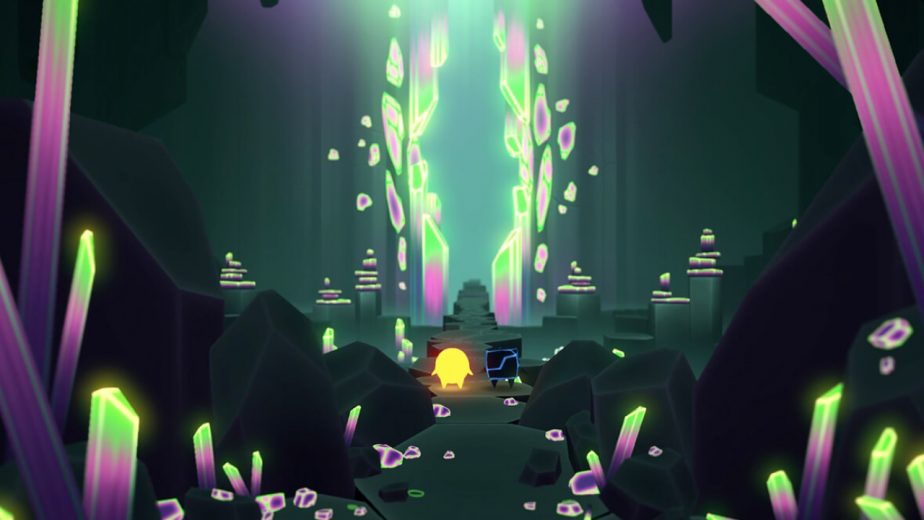
Roughly how many hours of content does Pode contain?
“Eight to ten hours. I have seen somebody finish it in six hours, but I think they’d already had some practice before that!”
Are there elements in the game, like collectable elements, multiple levels of difficulty, or other systems which are designed to encourage replayability?
“I can’t say no, but I can’t say yes either. I mean, there’s definitely collectables in there that you want to go back for, and sometimes those collectables… you can’t find them unless you found them at the right time. So we like to encourage people to go back into a room to see if they left something behind. But going back in and going through the whole game, I don’t know if that would be so much fun, but there are secret rooms, and there is also a secret storyline. So after you solve the puzzles you might want to revisit the environment to see what that story is. So maybe yes is the right answer really.”
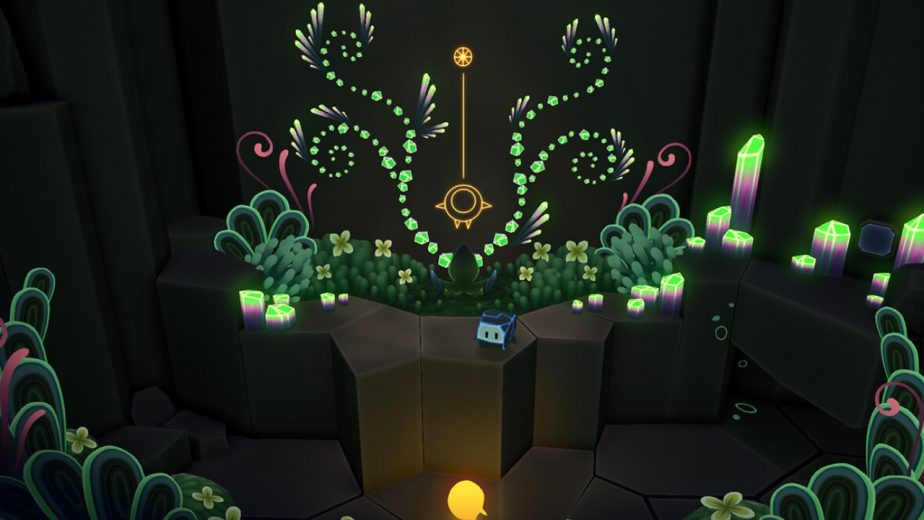
Pode is currently on the Nintendo Switch; do you currently have plans to bring it to other platforms beyond that, so consoles, PC, mobile?
“Yes. PlayStation is what we’re working on now. I was feeling confident at Gamescom at saying October, but I’m not feeling that confident anymore. So for now the best thing we can say is between November and February sometime it’s going to be out on PlayStation. We’re here with a PlayStation build now, so. And then right after that we’re coming out on PC. After that, no promises.”
On PC, will that be a launch through Steam or another platform?
“Definitely Steam, but I’m really intrigued with what Discord is doing right now, so we’re going to definitely look at what we can do there. But definitely Steam; Steam’s a great platform for PC games.”
